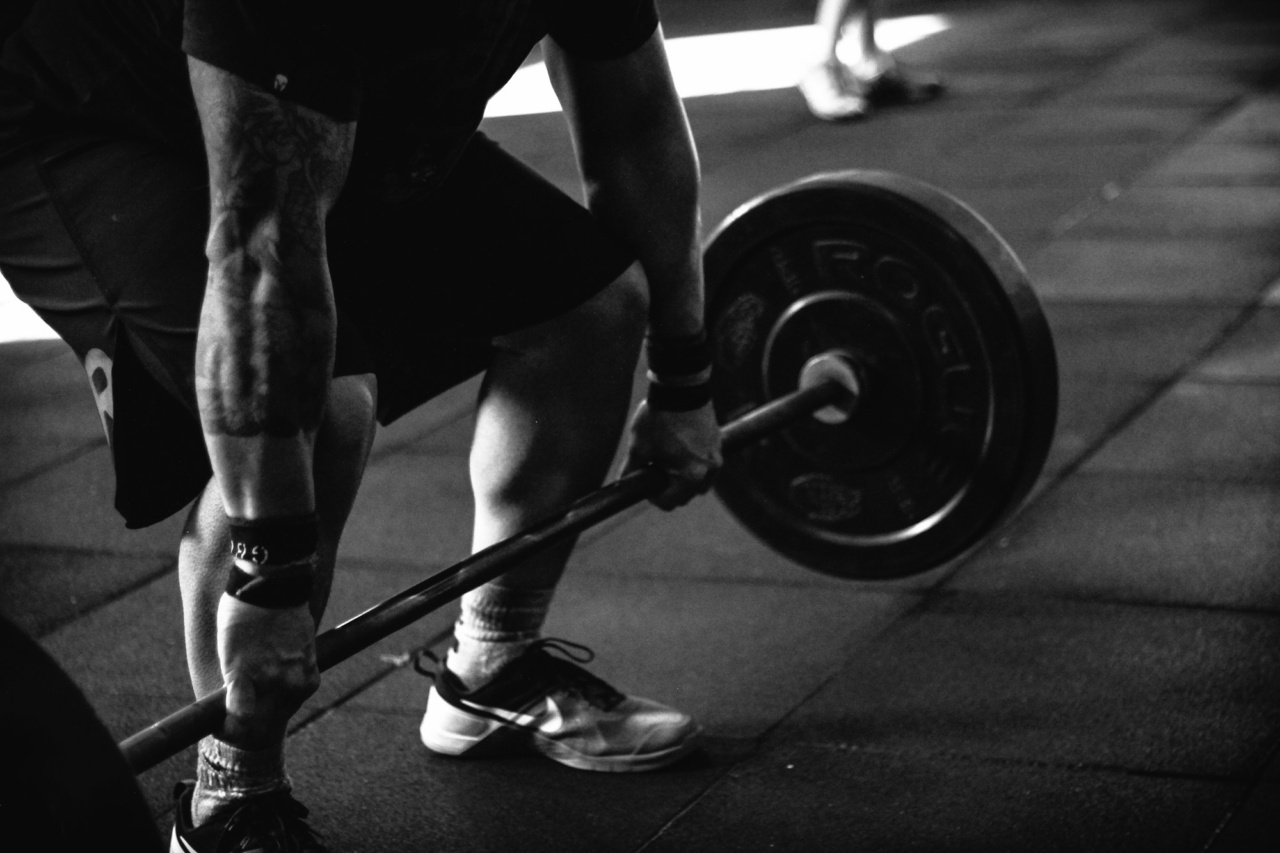Have you ever experienced sudden muscle cramps in the middle of the night or after a workout? These cramps can be extremely painful and can severely impair your mobility, causing discomfort and pain.
Frequent muscle cramps can be a sign of an underlying health condition or mineral deficiency. It is crucial to understand the causes of muscle cramps to diagnose and treat them effectively.
What are Muscle Cramps?
A muscle cramp is an involuntary and sudden contraction of one or more muscles that causes pain.
The muscle cramp can occur in any muscle in the body but mostly affects the lower leg muscles, such as the calves and hamstrings, and the muscles in the feet and hands. The muscle cramp can last for a few seconds to several minutes and can leave the affected muscles sore and tender.
Causes of Muscle Cramps
There are various reasons why one may experience muscle cramps frequently. Here are some of the most common causes of muscle cramps:.
Dehydration
Dehydration is one of the most common causes of muscle cramps. When you don’t drink enough water, your body doesn’t have enough fluids to carry out its normal functions, including muscle contraction and relaxation.
Dehydration causes electrolyte imbalances, mainly sodium, magnesium, and potassium, leading to muscle cramps.
Mineral Deficiency
Mineral deficiency, including potassium, magnesium, and calcium, can cause muscle cramps. These minerals are essential for proper muscle function. When there isn’t enough of them in the body, you may experience muscle cramps.
Low potassium levels, in particular, can lead to muscle cramps in the legs and feet.
Overuse of Muscles
Frequent use of muscles can cause them to become fatigued and lead to muscle cramps. Athletes who engage in high-intensity training or activities are more likely to experience muscle cramps due to overusing their muscles.
Additionally, performing intense activities without stretching and warming up may increase the chances of muscle cramps.
Injuries
Muscle cramps can also occur due to an injury, such as a sprain or strain. The injury can lead to muscle fatigue and soreness, causing muscle cramps.
The muscle cramps usually go away once the injury is healed, but it can be essential to treat the injury and prevent muscle cramps from recurring during the healing period.
Medical Conditions
Several medical conditions can cause muscle cramps frequently. These conditions include diabetes, thyroid disorders, kidney disease, and liver disease. These conditions can lead to mineral imbalances, which can cause muscle cramps.
Additionally, peripheral vascular diseases, which cause poor blood flow to the legs and feet, can also cause muscle cramps.
Treatment of Muscle Cramps
The treatment of muscle cramps depends on the underlying cause. Here are some treatments for muscle cramps:.
Stretching
Stretching can help prevent muscle cramps by loosening and relaxing the muscles. It can also help ease the pain and discomfort of muscle cramps. Gentle stretches of the affected muscle can help alleviate the stiffness and soreness of the cramp.
Hydration
Drinking enough water can help prevent dehydration and mineral imbalances that cause muscle cramps. Drinking fluids that contain electrolytes such as sodium, potassium, and magnesium can help replenish the lost electrolytes in the body.
Supplements
Taking supplements such as potassium, magnesium, and calcium can help alleviate muscle cramps caused by mineral deficiency. However, it is essential to consult your doctor before taking any supplements.
Rest
Resting the affected muscle can help relieve muscle cramps. Taking breaks from activities that overuse the muscles and resting can help reduce the likelihood of muscle cramps occurring.
Additionally, putting a heating pad or ice pack on the affected muscle can help ease muscle cramps.
Medical Treatment
If muscle cramps are caused by an underlying medical condition, treating the condition may be necessary to alleviate the cramps. Your doctor may prescribe medications or recommend lifestyle changes to treat the condition.
Conclusion
Frequent muscle cramps can be a sign of an underlying health condition or mineral deficiency. Understanding the causes of muscle cramps can help diagnose and treat them effectively.
If you experience muscle cramps frequently, make lifestyle changes such as drinking enough water, stretching, and rest. If the muscle cramps persist, it’s essential to visit your doctor to determine the underlying cause and receive appropriate treatment.































